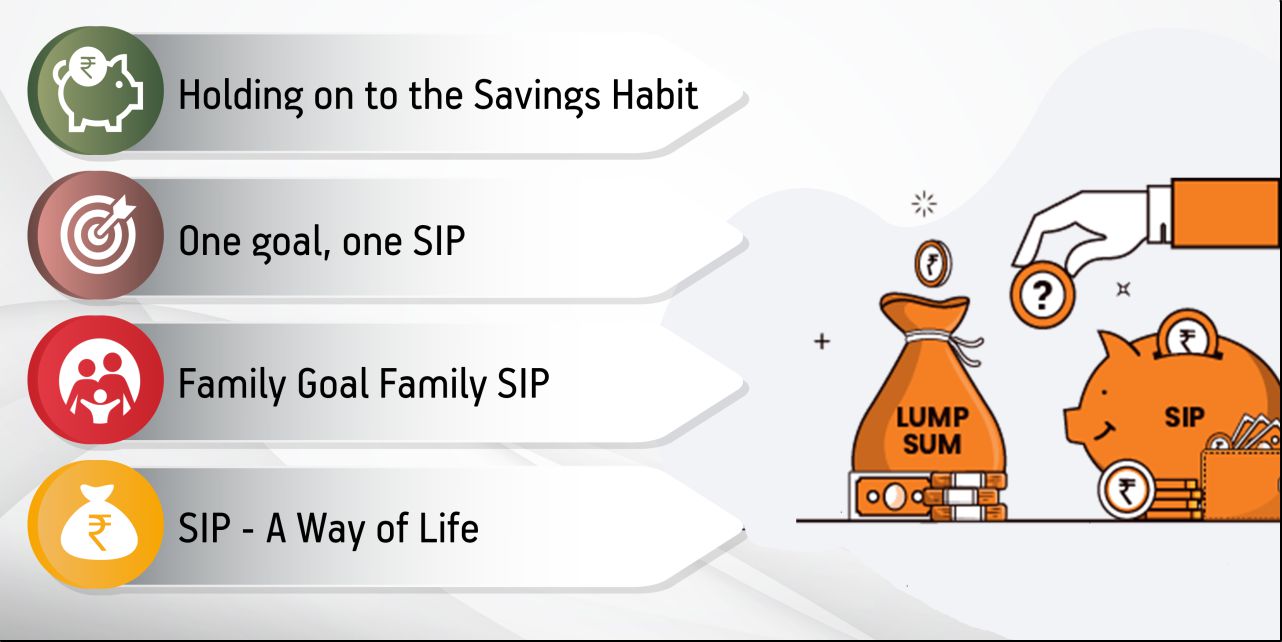Hey there! Are you tired of struggling to make money in the stock market? Are you ready to up your game and become a pro? Well, you’re in luck! In this blog post, we’ll be sharing 7 proven ways for making money with stock trading in India. Whether you’re just starting out or you’re a seasoned pro looking for new ideas, these tips will help you maximize your profits and take your stock trading skills to the next level. So, let’s get started!
First is Intraday Stock Trading
Intraday trading, also known as day trading, is all about buying and selling stocks within the same day. It’s a fast-paced and exciting way to make money in the stock market, but it’s not for the faint of heart. It requires quick reflexes, a sharp mind, and nerves of steel. Oh, and it helps if you have a little bit of luck on your side too.
Now, we know what you might be thinking: “But I’m not a financial wizard! I don’t have the skills or knowledge to succeed at day trading.” Well, don’t worry! With the right tools and strategies, anyone can learn to trade like a pro. Just make sure to do your research, set clear goals, and manage your risk carefully. And remember, a stock market is a volatile place, so don’t put all your eggs in one basket (or all your stocks in one trading account).
So, if you’re ready to take on the fast-paced world of intraday trading in the Indian stock market, go for it! Just don’t blame us if things don’t go as planned. After all, we warned you that it’s not for the faint of heart. But hey, if you’re feeling lucky, go ahead and give it a shot. Who knows, you might just strike it rich!
So the next question that will be hovering in your mind is Where do you learn Intraday Trading?
Intraday trading can be a tricky business, but don’t worry, there are plenty of resources out there to help you learn the ropes. Some options include taking online courses, attending trading workshops or hot YouTube, or finding a mentor in the industry. And if all else fails, you can always try asking your friendly neighborhood stockbroker for some tips LIKE us. Just remember, with intraday trading, it’s all about timing…so don’t dilly-dally!
Second is Future Stock Trading
Hey, there fellow traders! Are you ready to jump into the world of future trading in India? Well, buckle up because it’s going to be a wild ride.
First things first, what exactly is future trading? Simply put, it’s a financial contract where two parties agree to buy or sell a specific asset at a predetermined price and date in the future. It’s a way for traders to hedge their risks and potentially make a profit.
Now, let’s talk about India. The futures trading market in India is booming, with the National Stock Exchange of India being the largest derivatives exchange in the country. But be warned, it’s not for the faint of heart. It’s a highly volatile market and requires a good understanding of market trends and analysis.
But don’t worry, if you’re feeling a little overwhelmed, there are plenty of resources available to help you navigate this exciting (and sometimes scary) world. Just remember to always do your research and never invest more than you can afford to lose.
And if all else fails, just remember the wise words of legendary investor Warren Buffet: “The stock market is a device for transferring money from the impatient to the patient.” Happy trading!
The Third is Option Trading
Options trading is a type of financial derivative where the buyer has the right (but not the obligation) to buy or sell an asset at a predetermined price on or before a certain date. It’s a way for traders to hedge their risks and potentially make a profit.
But be warned, options trading can be a bit complicated. It requires a good understanding of market trends and analysis, as well as the various options and strategies available (e.g., long call, short put, etc.). And let’s not forget about the pesky Greeks (delta, gamma, theta, etc.), which measure the sensitivity of options to various factors such as time, volatility, and price.
But don’t let all this jargon scare you off. With a little bit of education and practice, you too can become a pro at options trading. Just remember to always do your research and never invest more than you can afford to lose.
And if all else fails, just remember the wise words of legendary trader Jesse Livermore: “There is only one side to the stock market, and it is not the bull side or the bear side, but the right side.” Happy trading!
The Fourth is Swing Stock Trading
Swing trading involves taking advantage of short-term price movements in the market, typically lasting from a few days to a few weeks. It’s a way for traders to capitalize on the fluctuations of the market without having to commit to a long-term position.
But don’t let the short-term nature of swing trading fool you, it requires a good understanding of market trends and analysis. It’s important to identify key support and resistance levels and have a solid risk management plan in place.
And let’s not forget about the importance of patience in swing trading. As the saying goes, “Good things come to those who wait.” (Okay, that may not be an actual trading quote, but it still holds true).
So, if you’re ready to take on the market with your swing trading strategies, just remember to always do your research and never invest more than you can afford to lose. And if all else fails, just remember the wise words of legendary trader George Soros: “Markets are constantly in a state of uncertainty and flux, and money is made by discounting the obvious and betting on the unexpected.” Happy trading!
The Fifth is the Option Writing
Option writing, also known as selling options, is a strategy used by investors to generate income or hedge against potential losses. It involves selling a contract, called an option, that gives the buyer the right, but not the obligation, to buy or sell an underlying asset at a predetermined price on or before a specified date.
As the seller of the option, you collect a premium from the buyer upfront, but also take on the risk of potentially having to buy or sell the underlying asset at an unfavorable price. It’s a bit like being a carnival barker, trying to entice people to play a game of chance with you. You get paid regardless of whether they win or lose, but if they win, you might end up having to pay out more than you anticipated.
Option writing can be a lucrative strategy for experienced investors, but it’s not for the faint of heart. As the famous investor Warren Buffet once said, “Options are not a good way to bet on the direction of the stock market or the direction of particular stocks.” So, if you’re thinking about giving option writing a try, make sure you fully understand the risks and have a solid risk management plan in place.
In the words of the legendary trader Jesse Livermore, “It is not the man who is right that makes money, it is the man who is right at the right time.” Timing is key when it comes to option writing, as you’ll need to accurately predict how the underlying asset will perform in order to maximize your profits and minimize your losses.
So, if you’re ready to take on the challenge of option writing, remember to stay cool, calm, and collected and always have an exit strategy in case things don’t go as planned. As wise trader Paul Tudor Jones once said, “The market can remain irrational longer than you can remain solvent.”
The sixth is a hot favorite when stocks are down more than 3% I’m sure you guessed it right – Investing.
Investing in the stock market can be a lucrative way to grow your wealth over time. In India, the stock market is regulated by the Securities and Exchange Board of India (SEBI) and offers a wide range of investment opportunities in various sectors.
To start investing in the stock market, you will need to open a Demat account and a trading account with a registered stockbroker. You can then use your Demat account to buy and sell shares of publicly listed companies listed on the National Stock Exchange (NSE) or the Bombay Stock Exchange (BSE).
Before you start investing, it is important to do your research and understand the risks involved. The stock market can be volatile, and it is important to diversify your portfolio to spread risk and maximize returns. It is also a good idea to consult with a financial advisor or professional before making any investment decisions.
Here are a few Quotes to Inspire you on Your Journey as a Stock Market Investor:
“The stock market is filled with individuals who know the price of everything, but the value of nothing.” – Philip Fisher
“The stock market is a device for transferring money from the impatient to the patient.” – Warren Buffet
“I will tell you how to become rich. Close the doors. Be fearful when others are greedy. Be greedy when others are fearful.” – Warren Buffet
In conclusion, investing in the stock market can be a lucrative way to grow your wealth, but it is important to do your research and understand the risks involved. By being patient and disciplined, you can potentially achieve financial success in the stock market.
The best investment someone can make is in themselves.
I’ll share some advice in this area, Dear Readers. So let’s get to work on making 2023 and many more years to come the years of your highest production.
Here are a Few Tips for Making the Best Version of Yourself:
- Set specific, achievable goals for yourself. As Confucius said, “A journey of a thousand miles begins with a single step.”
- Prioritize your personal growth and development. As Tony Robbins said, “Personal growth is the key to living a life of purpose, passion, and impact.”
- Practice self-care and prioritize your mental and physical health. As Mahatma Gandhi said, “Your body is a temple of the living God. It is the means by which you can achieve your highest potential.”
- Surround yourself with positive, supportive people. As Jim Rohn said, “You are the average of the five people you spend the most time with.”
- Don’t be afraid to seek help or guidance when needed. As Albert Einstein said, “The more I learn, the more I realize how much I don’t know.”
Hope you guys find some fruitful in this blog.
Need a financial planner to Contact Us
𝐓𝐨 𝐊𝐧𝐨𝐰 𝐌𝐨𝐫𝐞 𝐂𝐚𝐥𝐥: 
Happy Stock Trading and Wish you good luck.




















